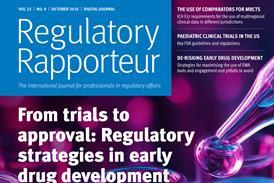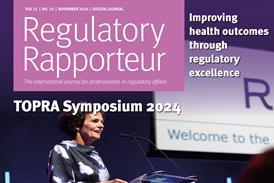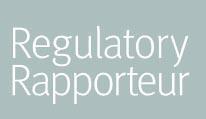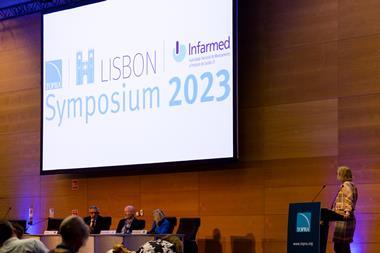In this issue, we focus on the pharmaceutical supply chain and the interaction of this function with regulatory. The supply chain team are the link between the manufacturer and the customer, and they are impacted by the complexity of regulations across different global markets and work with regulatory colleagues to navigate these and ensure delivery of supply.
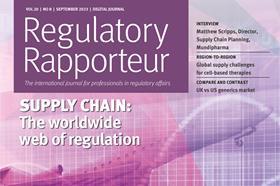
Regulatory Rapporteur
September 2023 | Volume 20 | No.8
The global supply of starting materials for cell-based therapies is explored in a key article for this issue. This is a complex area as allogeneic products use biological starting materials from a donor, and the majority of these use blood apheresis. The global supply of donated blood purposed for starting material presents a number of challenges including availability of donors, regulatory requirements, complex logistics and technical testing requirements. This supply is also negatively impacted by infectious disease such as COVID-19. A lack of harmonisation on control of these starting materials places a burden on developers.
As part of this issue, we carried out an interview with Matthew Scripps who is a director of supply chain planning. This interview provides a high-level overview of the activities and principles of supply planning and also highlights the criticality of interaction with the regulatory function to manage planning and implementation of guideline changes. This interview also looks at where the industry should focus in the future and discusses an emphasis on simplification and harmonisation of regulatory requirements, as well as looking at how we use and increase the use of digital approaches.

We also cover a detailed comparison of the UK and US markets for generic supply. This focuses in on the differences and similarities between the markets and the strategy companies need to develop when looking at generic development in both markets. For example, the FDA offers 180-day market exclusivity for the first generic to market, however, this is not available in the UK. The reference product is locally assigned and therefore you could have different formulations in the two markets that need to be compared against. In addition, bioequivalence clinical studies are governed by local guidelines and therefore variation in the requirements to generate the required clinical equivalence data are also seen between the two markets.
Also available are two articles covering a guide on negotiating the complexities of chemistry, manufacturing and controls (CMC) development for biosimilars detailing the requirements for sponsors in this field. This issue also includes a five-year analysis of warning letters from the FDA for drug marketing and promotional activity which goes direct to the consumer.




